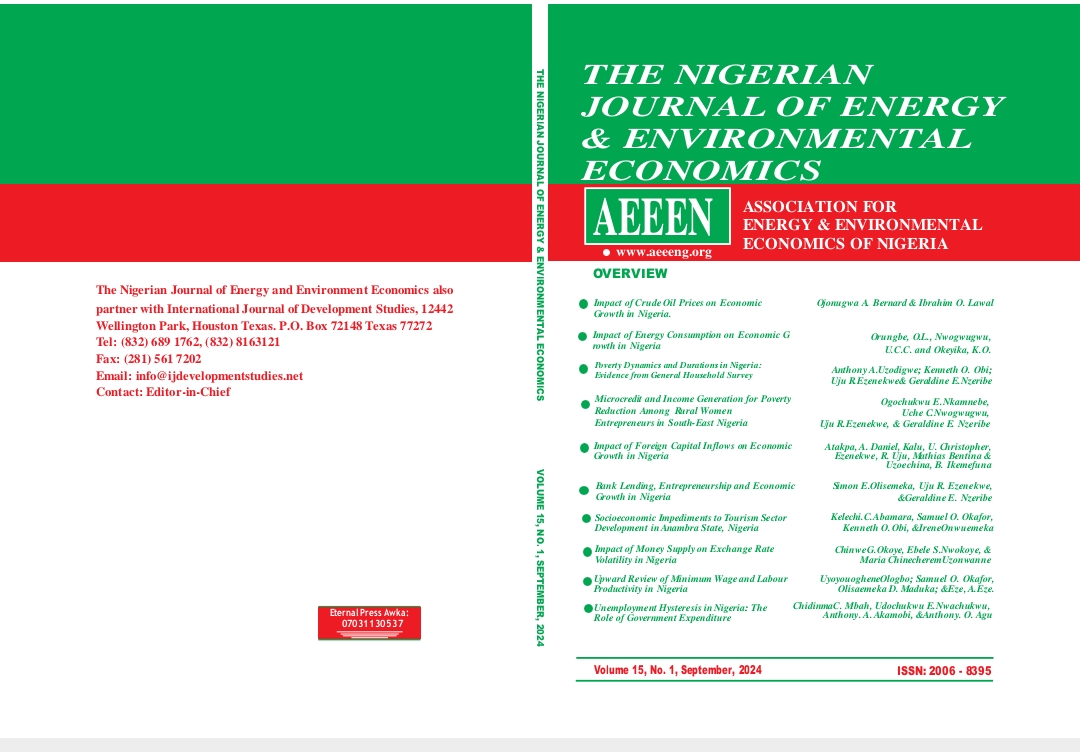IMPACT OF MONEY SUPPLY ON EXCHANGE RATE VOLATILITY IN NIGERIA
Keywords:
Exchange rate volatility, money supply, interest rate, Nigeria, ARDLAbstract
The study examined how money supply can be used to cushion the effect of exchange rate volatility in Nigeria from 1981 to 2022, using autoregressive distributed lag model. From the result of the study, there exists a long run relationship among the variables. The results found that interest rate, inflation rate and trade openness had negative impact on exchange rate volatility in Nigeria in the long run, while money supply and output growth had positive impact. The short run result shows that output growth and money supply have positive impact, while interest rate, inflation and trade openness have negative impact. In the long run, none of the variables is statistically significant while in the short run, only money supply is statistically significant at 5%. The error correction term had the expected sign with the value of -1.09, which means that about 1.09% disequilibrium in the previous year was corrected for in the current year. In conclusion, money supply has significant impact on exchange rate volatility in Nigeria. The study therefore recommends, in line with the findings, that government should implement contractionary monetary policy measures so as to reduce the volume of money in circulation and thereby curb exchange rate volatility.


